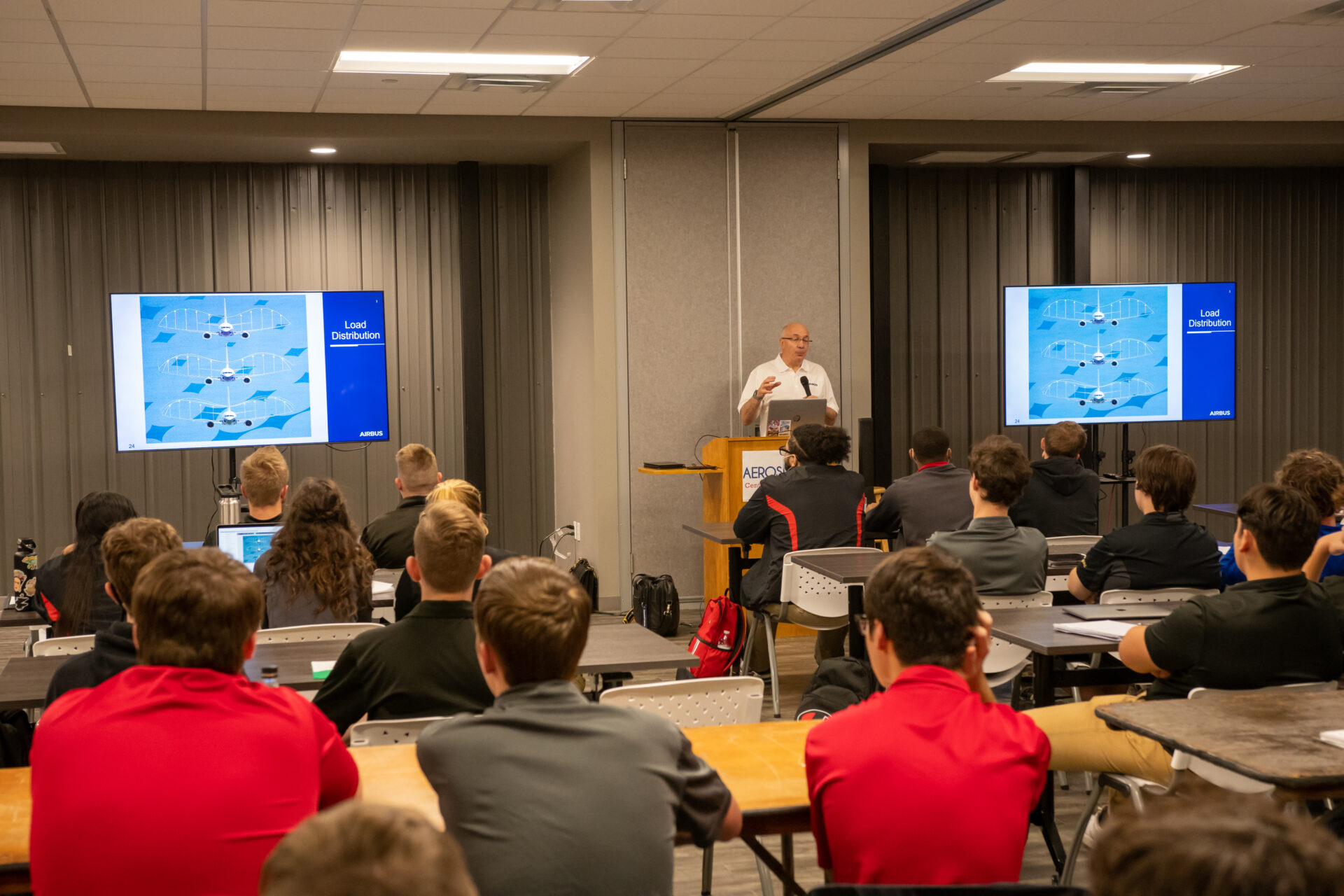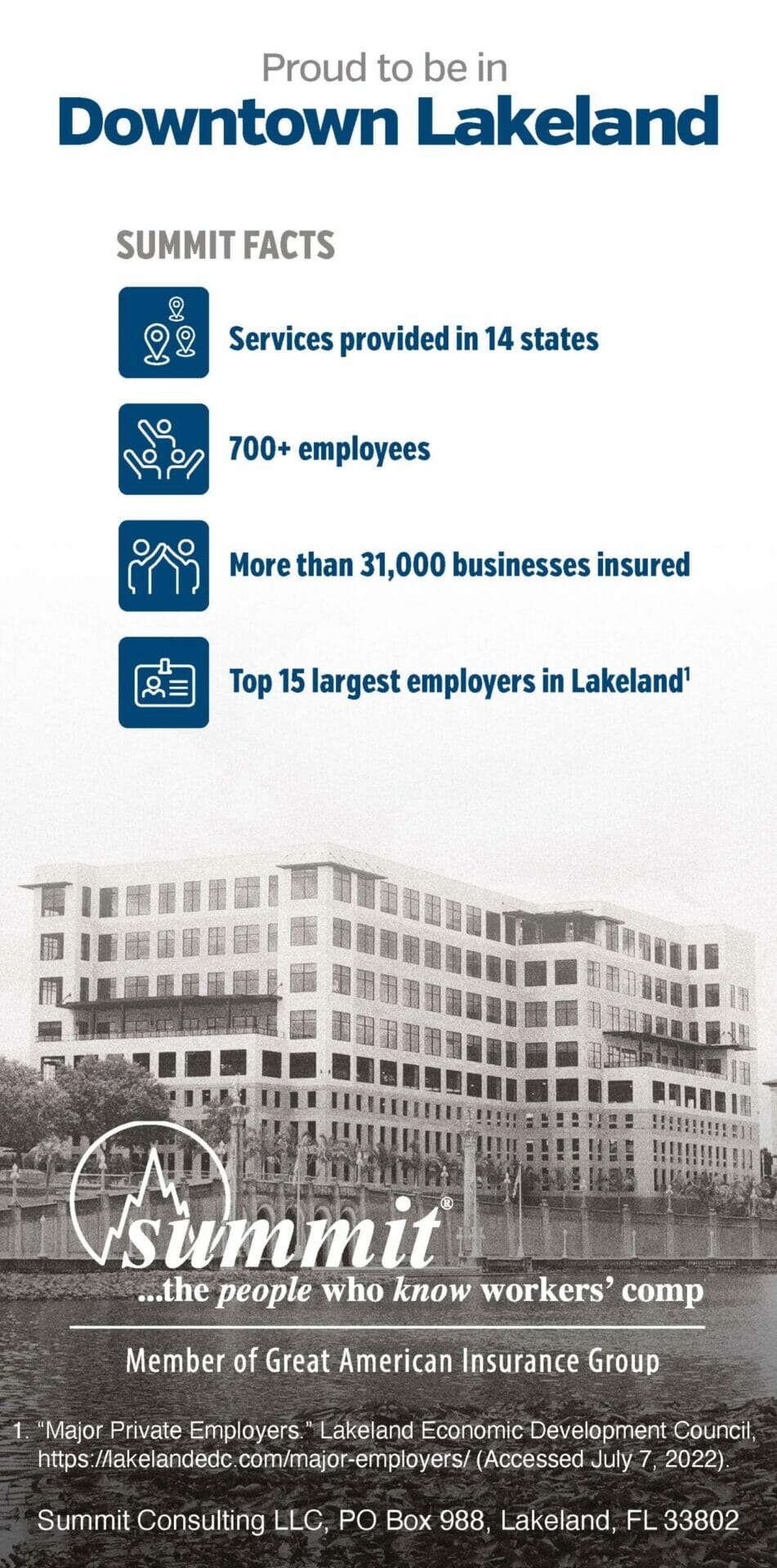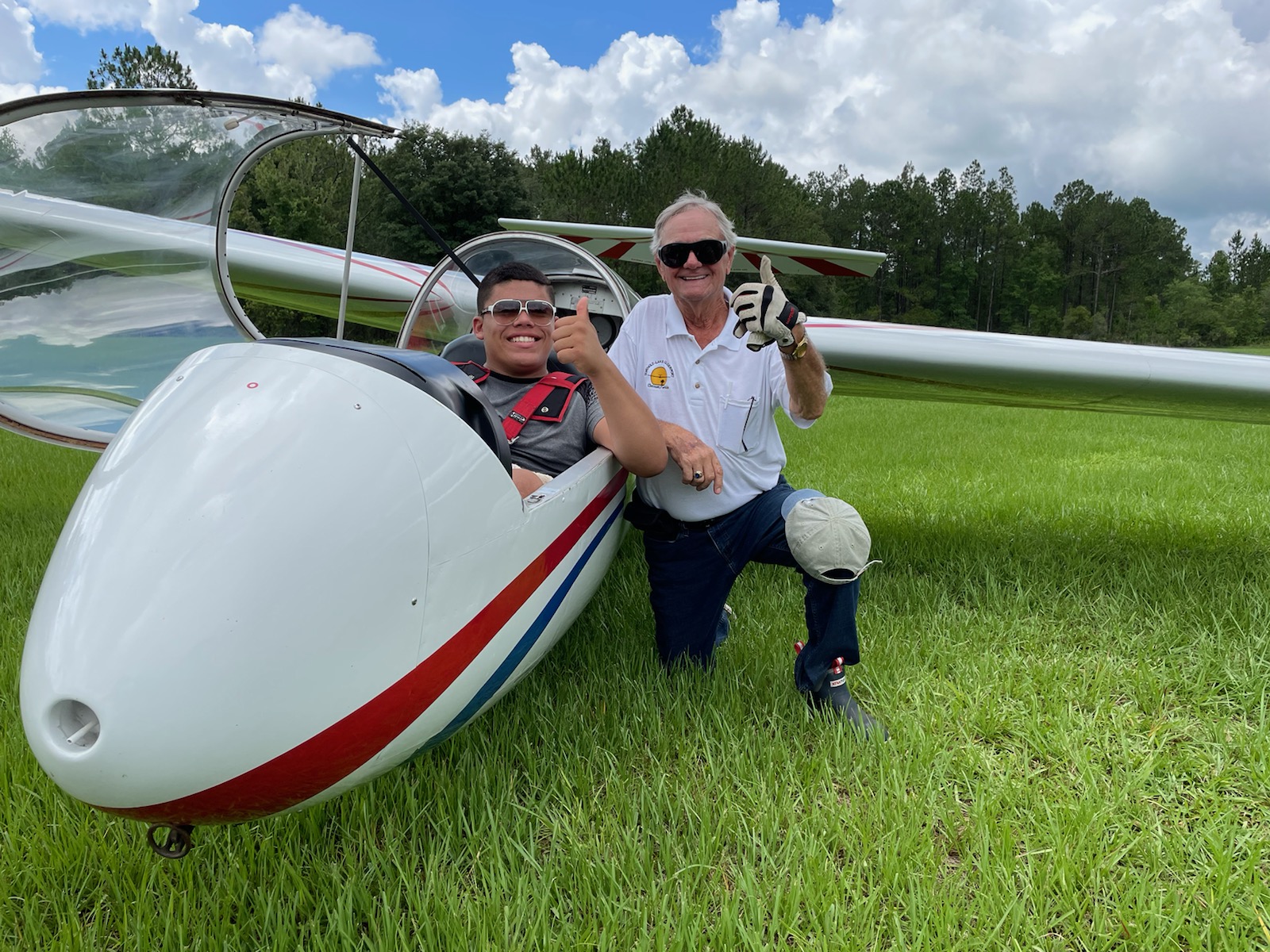
First Kindergarten, Then Careers: How Academies are Transforming Education in Polk County
By Adam Spafford
Photography provided by PCPS
During his first-year of high school, Corey Johnson worked with Delta, Arby’s and the Polk County Sheriff’s Office. Yes, you read that right. Johnson was not an employee of the three recognizable entities, but he was on teams of students who put together presentations that aimed to solve real-time challenges as part of the new 3DE Academy at Teneroc High School.
The school-within-a-school model brings a comprehensive experiential educational curriculum designed by Junior Achievement to life through dedicated teachers and facilities within existing high schools.
Johnson and his peers collaborated on projects that were in-partnership with businesses, organizations and corporations, and were then judged according to a comprehensive rubric by field experts and actual employees from the companies.
“School without 3DE for me is much less engaging,” he said. “You also are forced to work with people you wouldn’t normally converse with, which is what happens in real businesses.”
Across 12 public high schools in Florida, 3DE has proven to reduce student absences by 22.5%, increased math proficiency by 55.2%, increased reading proficiency by 81.3%—and most telling, increased graduation rates 33.6% in schools that have already had program graduates.
District leaders are excited about the possibility of 3DE expanding across the county once financials and program logistics can be fully fleshed out, and it is another positive step in the right direction when it comes to equipping students for the long-haul by providing them career-centric opportunities at younger ages.
You also are forced to work with people you wouldn’t normally converse with, which is what happens in real business.”
– Corey Johnson
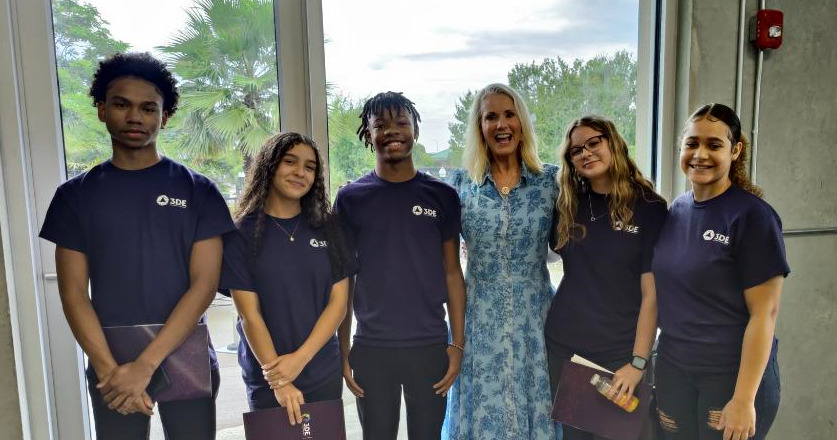
In the millenia since Plato founded the Academy, the formal pursuit of wisdom and virtue has evolved with the needs of society. Though a particular focus is not required of an academy, perhaps at times blurring the lines with modern liberal arts schooling, the term is often associated with specific disciplines—think military, or culinary, or art & design. In this way, we’ve come to envision these two intellectual approaches as complementary, one being focused and one more diffuse.
Today, a powerful hybrid educational model is being cultivated within Polk County Public Schools: alongside traditional education there’s been rapid integration and expansion of the Academy structure. These specialized institutions and comprehensive programs offer learners the chance to explore potential interests sooner and develop skills around those interests while aligning with local career opportunities.
“Since adopting the National Career Academy Coalition (NCAC) standards in 2010, the number of academies in the county’s high schools—and even some middle schools— has grown to 122, including 29 that are certified by independent auditors and nine that are models for schools nationwide,” explains Steven Cochran, Senior Director for Career, Technical and Adult Education for PCPS.
Those numbers put PCPS second in the nation as far as number of accredited and certified academy programs. More than 30 percent of Polk County High Schoolers attend an academy.
Cochran, who serves on the board of the NCAC—whose standards are colloquially known as “the Nashville mode” thanks to its city or origin—credits former Superintendent Jacqueline Byrd and current Superintendent Fred Heid for the success of PCPS academies. Several of the certified academies have already hosted visits by educators from around the country—from as far away as Hawaii—to see first-hand how these standards are enriching students.

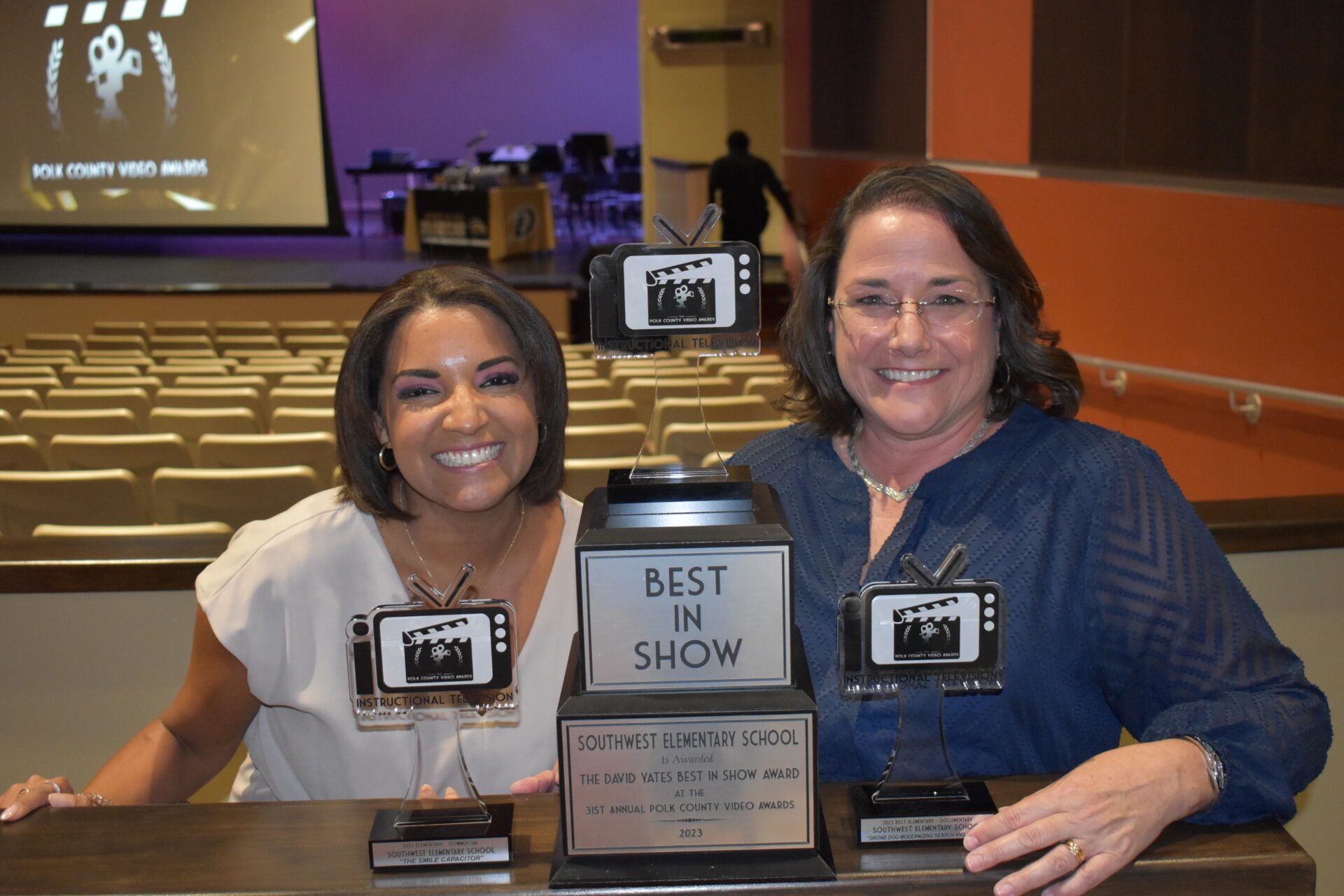

As Cochran explains: “There are 10 standards at each certified site which focus on aiming students at career and college, fostering a tight-knit learning environment so students have a sense of belonging, and teacher collaboration with career and technical educators in order to tie academics to career relevance.”
This structure currently provides Polk County students with opportunities for focused training in aerospace, leadership, medical, construction, television, business and more.
“The more students are exposed to opportunities and occupations, the more their ideas can take root. Without that exposure, their options become limited,” Cochran says.
The benefit to students is more than intellectual.
“Students want connection—and they want to know what they’re learning is going to be of value in the future,” Cochran continues, noting that students can earn industry certifications, college course credits, and sometimes both.”For those students who continue on to college, the credits can save them tuition money and for those who may not have considered college as an option, it can give them confidence that they can excel in higher education.”
It all works to allow students an earlier chance at seeing how their K-12 experience is preparing them for the rest of their lives.
When do we break the cycle of telling kids that you’ll get to do what you want to do when you get to high school? Why delay [until] 12 years or 8 years [old]? How do we create opportunities for students to explore our academies and career tech education, and do that at the earliest stage possible. ”
– Superintendent Fred Heid
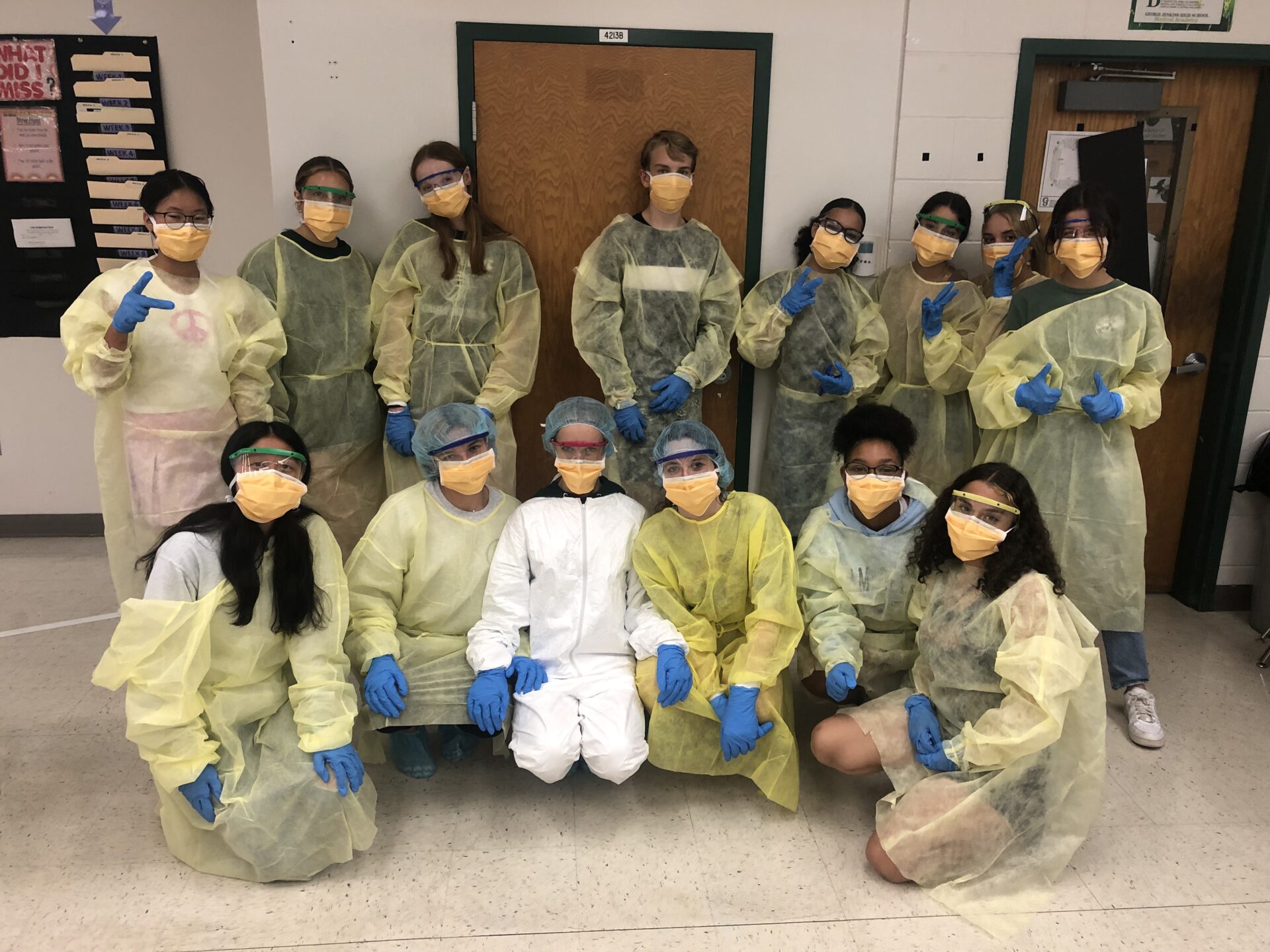
“When do we break the cycle of telling kids that ‘you’ll get to do what you want to do when you get to high school?’” Superintendent Fred Heid asks rhetorically. “Why delay [until] 12 years or 8 years [old]? How do we create opportunities for students to explore our academies and career tech education, and do that at the earliest stage possible?”
Cochran adds that a strategic shift like that correlates well with research that notes that many 7th graders have “some sort of idea of what they’d like to do,” and the state mandate to assess students’ career interest in 8th grade.
Connecting students’ interests to vocational opportunities is instilling love of learning while also setting the stage for Lakeland’s future skilled workforce.
Last year, an iTV broadcasting studio was built at Southwest Elementary School, with the support of local realtor Jen Lay and Indie Atlantic Films Founder Andy McEntire.
PCPS started an eSports program that Heid says “is highly successful and continues to expand into new schools,” and a newly launched home design and construction program at Bartow High School won a national competition.
And that’s just the start.
Ridge Community High School will soon introduce several new academies, including a hospitality program, in partnership with UCF and Harry Rosen.
Six high schools in Polk County will offer a new Civics Academy that focuses on career and technical occupations that will “expose students to opportunities in local government such as those highly skilled but often overlooked jobs of keeping safe water running and constant electricity flowing,” according to Cochran.
A new Air Traffic Control Academy will also launch soon in Bartow.
Heid hopes to launch academies for even younger students—beginning with middle schoolers—for the 2024-25 school year. “We want to continue to provide options that students find of value and interest….and that obviously align to industry needs.”
Cochran adds that there’s even an Agricultural Academy slated for Willow Oak School— something completely new to Florida.
Families now have the option to provide their children with a focused, specialized education within the public school system, eliminating financial barriers and bolstering opportunities for all. “It’s a big district so providing the same opportunities for all students is a challenge,” Cochran says, “but students can apply for an academy outside of their district.”
In the past the district would host one large-scale educational showcase each year at RP Funding Center, but the district is now hosting five showcases around the county in January to make the event more accessible and hopefully spur on greater turnout.
“We want kids to be at the dinner table at night talking their parents’ ears off [about what they’re learning],” Heid says. “Soon parents and students will be able to enter their interests into an app or PCPS website to find magnet schools and academies based on their interests. We’re creating that drive earlier and earlier.”
And so the pursuit of wisdom that began in an ancient Athenian grove known as Akademos is today inspiring the academies of Polk County Public Schools. As we might have heard the great philosopher say, “Do not train a child to learn by force or harshness; but direct them to it by what amuses their minds, so that you may be better able to discover with accuracy the peculiar bent of the genius of each.”
